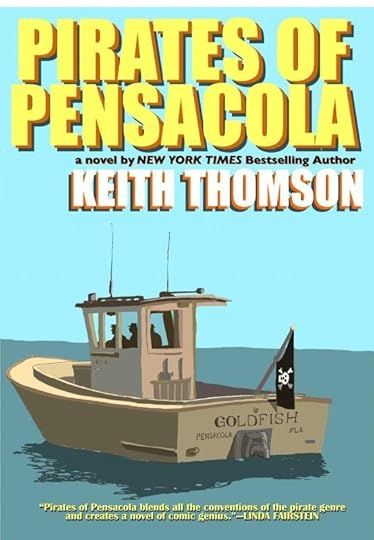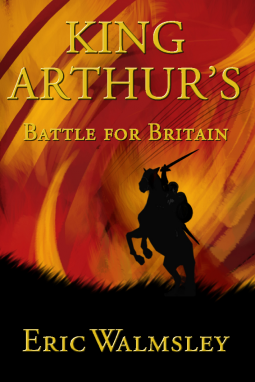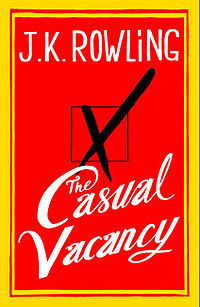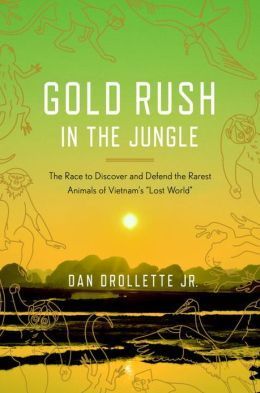Alex C. Telander's Blog, page 59
May 10, 2013
GUEST POST: Jack Campbell, author of “The Lost Fleet: Beyond the Frontier: Guardian”

Imagine The Lord of the Rings in which the geography of Middle Earth didn’t influence the story. Frodo and friends leave the Shire and bang! They’re at Rivendell. The Fellowship leaves Rivendell and bang! They’re at Moria, then bang! They’re at Rohan and bang! They’re at Minas Tirith. Instead of the long marches through Middle Earth, across the mountains and plains and through the forests and the mines, there would just be a series of events at separate locations.
It doesn’t sound nearly as good, does it?
Yet, that is how most “space” opera handles space. Trips between stars and planets usually take only a short time, sometimes just the blink of eye. Even when long trips are involved, they are shown as a series of destinations. When starships decide to fight, even though they are capable of covering light years of distance in a short time, those starships battle by zipping up to each other in a few moments, then slugging away toe-to-toe like boxers in a ring.
A lot of stories don’t want to deal with space. It’s too big and too empty, unimaginably huge, limitless in all directions, no up or down, and practically nothing in the way of obstacles or barriers compared to the surface of a planet. How huge? It’s about twenty five trillion miles to the nearest star (that’s about forty two trillion kilometers). How do humans get their heads around such a number? Even within a single solar system, the distances are enormous. From Earth to Mars is anywhere from thirty six million miles to two hundred fifty million miles. Why do the numbers vary so much? Because both Earth and Mars orbit the sun. Everything in space is moving, nothing just sits still, so travel is a matter of intercepting a moving target, not going to a fixed location. And if you move fast enough, stuff gets weird thanks to Relativity. Your view of the universe gets distorted. Space is not only big, it’s complicated.
As a result, it’s common to adopt shortcuts that allow a story to ignore space. Means to zip almost instantly across those distances, means to see instantly and communicate instantly across space.
I think that’s a mistake, because all of that empty space matters as much as the mountains and rivers of Middle Earth. Just as the ocean matters on Earth. Space and the sea are different characters, of course. The sea is an active character, aiding you or trying to kill you. Ask any sailor. But space is passive. It sits and waits for a mistake, an accident, an equipment failure, and then it is there, cold and unforgiving. To someone voyaging in space, all of that Nothing is Something. Watch the brilliant movie Apollo 13 and you’ll see what I mean. Space is there, the monster lurking just outside the capsule.
But, if putting space into space opera is a good idea, how can we do it?
As it turns out, the universe has given us a tool to show its huge distances in ways humans can understand. Light. One billion kilometers means…what in terms of distance? It’s considerably easier to grasp the idea that light itself takes one hour to travel that distance. One light hour. Describe the distances as light seconds, light minutes, and light hours, and suddenly we have a meaningful means of measurement. Light itself takes that long to get from here to there? That’s big. Dealing with three light hours is a lot easier to handle than describing the distance as three billion kilometers. Using light as the means of description both simplifies showing how big space is, and makes it clear just how big space is.
It also shows the real obstacles in space. Where hobbits might have to ford rivers and climb over mountains, people in space have to deal with the fact that it will take hours for a message sent from their ship to reach another ship. And though they can see that ship, see it crystal clear across those billions of kilometers, they are seeing where it was and what it was doing hours ago. That distance matters. They need to cross it.
Yes, adding space into a space opera complicates it, just as putting the landscape of Middle Earth into that story complicates travel and plans and action there. But I discovered while writing the Lost Fleet series that those complications add a lot to the story. They make the characters confront more problems, more difficulties, more challenges. They make the setting come alive and feel real. They force me, the writer, to figure out how things would actually work in such a place rather than skipping over it. If I can’t take shortcuts, neither can my characters. I have to write better.
Because space is just waiting for you to make a mistake.
~ ~ ~

Jack Campbell (retired US Navy officer John G. Hemry) writes modern space opera, science fiction, military science fiction and fantasy.
His Lost Fleet series follows “Black Jack” Geary, a reluctant hero who fought a desperate last stand against overwhelming odds. In The Lost Stars series, former leaders of the Syndicate Worlds defeated by Black Jack try to rebuild something better from the ruins of that interstellar empire.
In the Stark’s War series, micro-management and politics have grown to rule the US military with disastrous results during a war on the Moon, while in the Sinclair/ JAG in Space series, a young Naval space warfare officer has to learn leadership as he confronts attacks, terrorist acts, spies and other threats that lead to court-martials in the best tradition of legal thrillers.
Jack has also written numerous short stories about time travel, alternate universes, space and the future.
For more information, check out his website.


May 8, 2013
Book Report: Guantanamo Library, Self Publishers Take Over, Boston Love & More!
Authors Draw Up “Manifesto” to Save Bookshops
Some local Venice authors have drawn up a “manifesto” to save their book stores.
Guantanamo Library Tumblr
A Tumblr of the library books at Guantanamo prison.
F. Scott Fizgerald’s Accounts
BBC reports that Great Gatsby author, F. Scott Fitzgerald’s accounts are now available online.
Macmillan Finalizes E-Book Settlement
Publishing giant Macmillan has finalized an ebook settlement with the Department of Justice, agreeing to pay $26 million.


May 6, 2013
“Gulp” by Mary Roach (Norton, 2013)
Mary Roach, bestselling author of Stiff and Bonk, brings her host of avid non-fiction readers to a whole new arena with Gulp. Welcome to the alimentary canal, a politely titled journey from a single bite passing through our bodies into the toilet bowl. Just as with her other books, Roach employs her patented humor and obsession for the detailed and at times gross.
Unsurprisingly, Roach begins with the mouth and taste and the importance of the sense of smell with taste. She recounts her meeting with a person whose job is to taste wines and beers that are “off” in some way. This person has such a developed and trained palate, she knows what has been done wrong in the fermenting of the beer, or the preparation of the wine. Roach then continues on down the gullet with succinct chapters on each part, providing lots of details of how it all works, what the process is, and plenty of facts you might have never wanted to know about your throat, or stomach, or intestine. But the book is also bursting with lots of information to increase one’s general knowledge, such as why stomach acid doesn’t burn through your stomach lining. The shocking answer is that it actually does, but the stomach lining is constantly being replaced with fresh, new stomach lining cells. And this is why a dead person’s stomach acid will burn through their stomach.
Perhaps Gulp’s only failing is that the reader is left wanting to know and learn more, but the book has to end somewhere. In addition to biological and science details, Roach also provides lots of stories and histories of past experiments of what was done in learning about these body parts and how they worked. And for those really curious, yes, there are multiple chapters on flatulence. Readers will not be disappointed, but they never are with Mary Roach.
Originally written on April 27, 2013 ©Alex C. Telander.
To purchase a copy of Gulp from Amazon, and help support BookBanter, click HERE.


May 3, 2013
“King Arthur’s Battle for Britain” by Eric Walmsley (Matador, 2013)
The legend of King Arthur is known in some form to most people, and has had so much literature written about that it’s quite astonishing. The real man likely lived sometime in the fifth century, but within hundred years of the man’s death – whenever it actually was – people began writing about him over the centuries and up to the present day. Not just biographies and supposed factual historical accounts, but plenty of fiction and historical fiction speculating on the period and what sort of man King Arthur truly was. In reality, it’s very unlikely he was ever actually an official king, but more of a great general for the Britons.
In King Arthur’s Battle for Britain, Erik Walmsley provides an accounting on Arthurs twelve battles pulling from sources like Nennius and Gildas, as well as many others be they short accountings or pieces of poetry. He also creates the scene and story with each battle, adding description and action, but also providing geographic detail and photos, as well as a brief history of the region. The book begins with introductory chapters on Arthur, who the man might’ve been, as well as the evidence that speaks for him, then a dedicated chapter for each battle with maps showing likely locations.
The one failing with King Arthur’s Battle for Britain is that as great of a story as Walmsley tells, he doesn’t cite his sources so readers aren’t sure what primary or secondary source he is getting certain information from, or whether he’s just adding his own fiction to create a stronger scene. Eric Walmsley is not a medieval historian, but he has researched this period and the sources for this book. While what he posits in King Arthur’s Battle for Britain needs to be taken with a grain of salt, it is nevertheless a plausible explanation for events recorded in these unconfirmed secondary Arthurian sources and who the man known as Arthur might have truly been like.
Originally written on March 16, 2013 ©Alex C. Telander.
To purchase a copy of King Arthur’s Battle for Britain from Amazon, and help support BookBanter, click HERE.


May 1, 2013
Book News: Amazon Goes To Russia, Origins of Sci-Fi Publishing, “New Adult” & More!
Amazon.ru Next?
Amazon is looking to grab hold of the domain name Amazon.ru with hopes of opening up in the Russian market.
Amazon Amnesty
An independent bookstore in Australia has a plan to promote sales and fight back against Amazon.
Patterson Sees Ad as a Wake Up Call
James Patterson speaks out about the full page ad he placed about he future of bookstores.
More Than Thirty Years Later
Tor editor Patrick Nielsen Hayden on Tom Doherty and the beginning of science fiction publishing.


April 29, 2013
Bookbanter Column: Diary of an Ereader, Part One: An Introduction
In the latter months of 2012 I joined a quickly growing population that just five years ago barely existed: I got myself an ereader.
As a writer and reviewer for well over a decade, I definitely got the sense — especially when I was a bookseller for Borders handselling ereaders — that there was this great flowing train of technology shooting by me, as everyone seemed to be getting and using ereaders, with new upgraded versions coming out every six months, and then the iPad arrived which was just better than anything else.
And there I was standing at the station, watching this train with all these new passengers getting on, but I didn’t have a ticket to this ereader train because it was too expensive.
I’m very much a hardcover or paperback or even mass market kind of guy.
I like the feel of a real book, be it a brand new hardcover that cracks open as you open it for the first time with that fresh smell.


April 26, 2013
Upcoming Bookbanter Ebook Giveaway

Starting May 13th, I will running an ebook giveaway for that week for a chance to win a Kindle ebook copy of Pirates of Pensacola by Keith Thomson. The giveaway will run from Monday, May 13th to Sunday, May 19th. On the following Monday, May 20th, I will announce the winner. To enter, you simply have to leave a comment on the giveaway post that will go up on Monday, May 13th. So mark your calendars!
And here’s some more info about Pirates of Pensacola:
Praise for Pirates of Pensacola:
“A swashbuckling parody, Pirates of Pensacola is a fine, breezy read filled with laugh-out-loud scenes and high seas drama.” —Richard Zacks, bestselling author of The Pirate Hunter: The True Story of Captain Kidd
“With rum, eye patches, peg legs, and a wisecracking parrot in need of a twelve-step program, Pirates of Pensacola blends all the conventions of the pirate genre and creates a novel of comic genius and originality. Keith Thomson is a shrewd and funny writer with a big future ahead of him.” —Linda Fairstein, New York Times bestselling author
“Set in modern times, Pirates of Pensacola follows our poor, nebbishly accountant hero into a life of waterlogged crime on the high seas. [Keith Thomson is the] best emerging comic novelist for a good long while, with touches of classic Rafael Sabatini and the most imaginative Hiaasen.”
—Jeff Danziger, political cartoonist with The New York Times syndicate and author of Rising Like The Tucson
“Pirates of Pensacola simultaneously thrills and endears itself with every explosively charged page.” —Richard Rushfield, author of On Spec
Reviews for Pirates of Pensacola:
“With its various oceangoing lowlifes, swashbuckling heroics and quirky humor, Pirates of Pensacola reads like a collaboration between Robert Louis Stevenson, Dave Barry and Douglas Adams after a night on the town.” —The Oregonian
“[Thomson] writes fluid, vivid prose, good dialogue and first-rate action scenes.” —The Washington Post
“Thomson’s beguiling, energetic debut. Crowned with buccaneer vernacular, plenty of colorful extras and a feel-good ending, it’s a vivid adventure tale befitting the high seas of Hollywood.” —Publishers Weekly
“Thomson’s rollicking debut, a tall, fanciful tale…throws us headlong into a world of peg-legged sea dogs and hidden treasure.” —Kirkus
“Thomson mixes a hodgepodge of odd characters, varieties of pirate-speak, and a short history of buccaneers in the area of the Caribbean into an oddball story replete with humor, love, and lots of adventure. There’s lots of swashbuckling action; a romance; and a scene-stealing, rum-seeking parrot. Fun, entertaining, and light, the story produces lots of smiles and more than a few laughs. —School Library Journal, Adult/High School, by Pam Johnson, Fairfax County Public Library, VA
“Brilliantly clever and funny, Keith Thomson has done a remarkable job creating a world that will ring familiar to many pirate enthusiasts. It’s a fascinating, edgy, wonderful glimpse at the pirate utopia of our dreams.” —Pirates and Privateers (cindyvallar.com)
“Devilishly charming and a real pirate treat.” —The Jolly Roger Pirate Journal


April 24, 2013
Book Report: Digital Library of America Opens, Murakami Gets Reviewed, Handwritten Bible & More
My So-Called ‘Post-Feminist’ Life in Arts and Letters
Deborah Copaken Kogan on her experience and career as a writer.
Booksellers Helping Booksellers
Independent bookstores working together and helping each other however they can.
Man Unveils Handwritten Bible
A man has handwritten a 1150-page bible.
Kobo Aura
Kobo as launched a new ereader that is supposed to be one of the best to get for easy ereading.


April 22, 2013
“The Casual Vacancy” by J. K. Rowling (Little, Brown, 2012)
After the unfathomable success of the Harry Potter series, with over 450 million copies sold worldwide, likely making it one of the biggest phenomena of our lifetimes, J. K. Rowling is now back with her first new book in five years. She now turns to a much more adult story about a quaint little English town where everything is most certainly not as it seems.
In the idyllic west country town of Pagford, where things pass at their own pace and everything stays pretty much the same, a change is about to happen. A respected citizen of the community, Barry Fairbrother suffers a sudden brain aneurysm and dies unexpectedly. It is a very sad time for the family and for the community, as he touched many lives during his time, as well as being an important member of the town’s council. But Barry’s passing is also the lighting of a spark that sets off an explosive chain reaction, as the empty space on the town council starts many wondering who should fill his seat, and a number of unlikely candidates come out of the woodwork.
The Casual Vacancy is also the story about a number of the characters of this community, and how they begin to act and react when this person who had an effect on their lives is gone and is no longer there to provide aid and advice. The book is by no means a happy novel, as these characters make terrible decisions that lead them down a downward spiral of despair. By the end of the book, the reader is left hoping their might be some sort of cathartic uplift, but Rowling is going for a harsh true-to-life approach here, where things don’t all of a sudden get magically better.
Overall the book comes off as a letdown, slow and dragging at points, with nothing to drive the reader along to keep reading, as things get worse and worse for just about everyone it seems. Rowling is perhaps pulling from some earlier experiences in her life before her fame and riches, as there are characters dealing with drug addiction, poverty, marital problems, and a whole host of unsavory issues. The book also comes off somewhat amateurish, as Rowling constantly references many places throughout this imaginary town that confuse the reader, and could have easily been aided with a handy map at the beginning of the book. Then there is the large host of characters, featuring many couples of about the same age, some even with the same first letters of their names, which often makes things confusing, and could’ve been helped with a simple cast list. Finally, there is the constantly switching P.O.V. from paragraph to paragraph, without any break in between, so that the reader becomes quite untethered and lost at times.
The Casual Vacancy was an experiment by Rowling in seeing what happens to a town when an important member dies and all the people he’d had an effect on begin making bad decisions that then effect the rest of the town. By the end of the book the reader is sad over the events of the book, though Rowling makes it clear that if any of the characters had made the decision to not think of themselves for a moment and to notice that nearby person suffering and help them, things would have come out quite differently. But because this social message is buried in the clunky format and pitfalls of the book with no satisfactory resolution, the reader is left wondering what was the point of reading this book to the last page.
Originally written on January 8, 2013 ©Alex C. Telander.
To purchase a copy of The Casual Vacancy from Amazon, and help support BookBanter, click HERE.


April 19, 2013
“Gold Rush in the Jungle: The Race to Discover and Defend the Rarest Animals of Vietnam’s ‘Lost World’” by Dan Drolette Jr. (Crown, 2013)
There is a secret in this world, a very important one that may disappear before we even know it was there. Vietnam is a nation filled with history and culture, but it is also a unique haven to some of the rarest animals on the planet; it is also one of the few places in this world where new species of fauna continue to be discovered. Gold Rush in the Jungle is the story of this most unique place.
Dan Drolette Jr. has been a quasi-naturalist; a nature and animal lover since he was a child, discovering a fascination and continuing with it throughout his life. He has written for publications such as Scientific American, Cosmos, Science, Boston Globe, and Natural History. His travels have taken him exploring and writing about flora and fauna as far and wide as Hawaii, Sweden, South Korea and Australia. Drolette Jr. first went to Vietnam in the late nineties and knew he had to return to study and write about his special place, which he did. Gold Rush in the Jungle is the culmination of all this work.
Vietnam’s jungles have remained relatively untouched, going through a turbulent history and a devastating war; ironically this has led to a somewhat protected habitat for its many species and plans. It has held back development and the advancement of civilization into the jungles, allowing the many animals to live in peace and multiply. But since the nineties, things have gone quickly downhill. With the rapid growth in animal trophies, and the use of animal parts as widely disproven medicines in china, poaching has become a very big business.
Fortunately, there are those who are fighting against this, starting up conservation groups and protected places in Vietnam, as well as national parks, one created as long ago as the 1960s with Ho Chi Minh. It is a very moving story, to see how animals like certain bears are barely kept alive to have their bile surgically removed, or the rhinoceros that used to inhabit these jungles and can no longer be found. Drolette Jr. goes into the history of this country, talking about certain rare animals that have since gone extinct, but there is still hope that one day they may resurface from these dense ecosystems.
Fans of Jared Diamond’s Collapse and Al Gore’s An Inconvenient Truth will love Gold Rush in the Jungle, with Drolette Jr.’s easy to read style that sucks you in, opens your eyes, and educates you with ideas and thoughts you have likely never had. It is a powerful story of a very real place that is like no other, and will stay with you long after you have read the last page.
Originally written on February 26, 2013 ©Alex C. Telander.
To purchase a copy of Gold Rush in the Jungle from Amazon, and help support BookBanter, click HERE.














